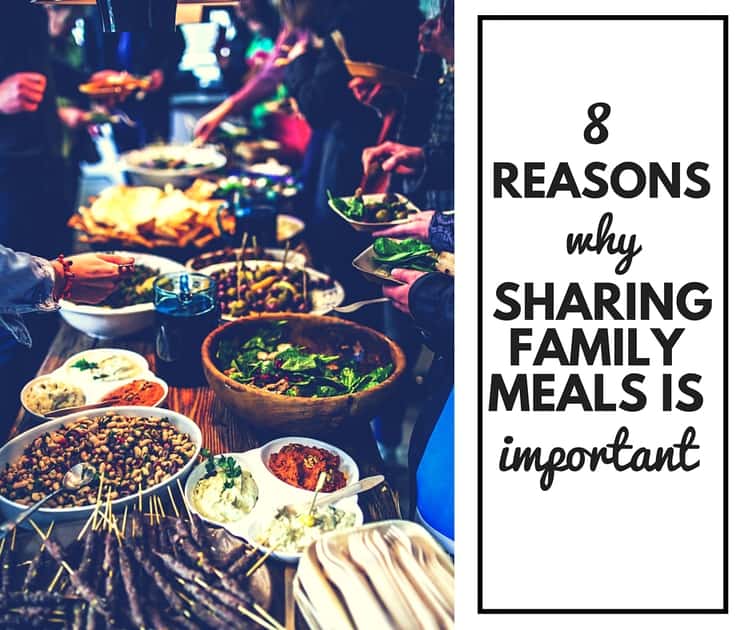
You may think that the biggest benefit of eating together as a family is to ensure everyone has food in their stomachs. However, sharing meals does more than satisfy physical needs; it also fuels emotional needs and draws people closer. Having family meals as often as possible will help ensure that your kids grow up healthy and have strong bonds with you and each other. Even if your busy schedules only allow a few each week, all of you will benefit from gathering for meal time.
Family meals provide time for conversations and each other’s company and love. Simply being together as a family and chatting about the day can be enough to help you stay connected. By encouraging pleasant and friendly conversation, everyone gets a chance to talk and listen to each other. No matter which meals you eat together, you’ll appreciate having the opportunity to catch up and discover what’s happening in each other’s lives.
Note: Turn off the television and phones. During meals, refrain from using phones, and only use them in an emergency. Focus on each other and your conversation.Involve the whole family in making dinner and assign each family member a task to help prepare the meals. You might find that some of the best conversations happen as you prepare a meal together. Work together as a team to share responsibilities. There’s no reason why you should have to do all of the cooking if others can pitch in. While older children cook and clean, younger kids can assist with setting the table and planning the menu.
Yet another option is to give everyone a turn to suggest or prepare their favorite dishes. This will teach your children how to compromise as they learn to accommodate others and express their preferences appropriately.- Preparing and serving your meals around the same time each day will encourage a sense of routine and structure in your home. Your family will know that if it’s close to 5:30 P.M., they need to get home or risk missing dinner. Having meals at the same time each day also discourages snacking or in-between meal eating.
Ask about each family member’s day. Teach your child that speaking up is important and that you’re genuinely interested in what they have to say. Allow everyone at the table time to talk, and you’ll soon find your kids eagerly waiting for their turn. You can help them build social skills by encouraging them to talk about their experiences and opinions during meals.
Use the time you spend as a family to discuss what’s happening in your community and the world. Find out what each person thinks about a particular topic. Take the time to let everyone have a turn to share their thoughts, and you’ll learn more about your family members.
Preparing and sharing meals is also an excellent way to influence your children’s eating habits. Talk about why certain foods are served and how to make healthy choices. Set a positive example by providing balanced meals with plenty of vegetables, fruits, whole grains, and lean protein. Discuss with your kids how foods provide nourishment and why it’s essential to refrain from eating too many refined and sweet foods.
Children who share meals with their families have been shown to do better in school. Studies also confirm that kids are more likely to excel in school when they grow up in homes where family dinners are routine. It’s yet another indication that involved parents are crucial to a good education. Younger children get a significant boost in language skills and vocabulary by talking with adults and older siblings.
You may also be surprised to learn that sharing meals can improve your child’s emotional well-being and relieve stress. Research has also revealed that kids who eat with their families have significantly lower risks for depression, substance abuse, suicide, and early sexual activity. When you keep daily communication flowing, your kids are more likely to feel loved and come to you with sensitive issues.
Family meals are an excellent opportunity to spend quality time together. Eating together regularly can help your child do well in school, help them to make positive choices, and help you stay connected with them. With this simple practice, you can get closer to your kids while they grow up healthy and happy.

